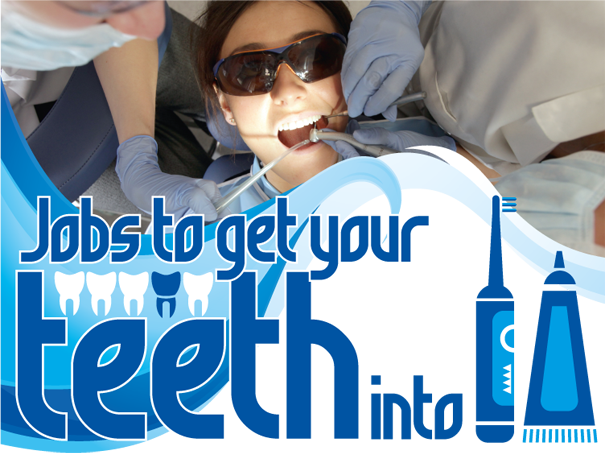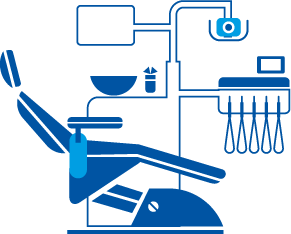
Working in dentistry and oral hygiene means being part of a dental team, each role within that team is as unique and valued as the next. Which one will make you smile?
BY Hetty Mosforth
One of the fantastic things about dentistry and oral hygiene is that there are jobs to suit every kind of person, beyond the traditional dentist.
Aside from the security that comes with a vocational career, working as part of a dental team provides unique challenges that differ from one patient to the next.
 There is the opportunity to work in hospitals, local practices, the armed forces or as part of a university teaching team. Entrepreneurial dentists go on to set up their own practices while inquisitive practitioners move into research fields.
There is the opportunity to work in hospitals, local practices, the armed forces or as part of a university teaching team. Entrepreneurial dentists go on to set up their own practices while inquisitive practitioners move into research fields.
Last year the BBC reported Newcastle Dental School professionals were responsible for research into a type of seaweed that reduced plaque on teeth. Dr Jakubovics, of the university’s school said: “Ultimately we hope to harness this power into a paste or mouthwash.”
Entry requirements vary dramatically depending on the role you are interested in and the level at which you want to study. To become a dentist you will likely need three As at A-level but with GCSEs grade D-G you may also be accepted onto a recognised dental nursing course.

Dentists
Contrary to popular belief, becoming a dentist doesn’t have to restrict you to working in a high street practice. Dentists can be found at the homes of patients, in nursing homes, in community clinics or in hospitals.
Increasingly the role of a dentist is to educate patients about how to look after their teeth, but also includes the treatment and prevention of oral disease and the correction of dental irregularities.
Dentistry courses are a mix of academic education and practical training, lasting at least five years.
Dental hygienists
Dental hygienists work to prevent dental problems arising by scaling or polishing teeth and applying fluoride or fissure sealants. Courses are provided by medical schools and last for two years.
Successful hygienists tend to progress onto practice manager roles, teach on training courses or work as orthodontic therapists.
 Dental nurses
Dental nurses
A dental nurse supports the dentist by ensuring the comfort of patients, sterilising instruments, taking notes, mixing materials and, depending on the size of the practice, may also help out in reception.
To work as a dental nurse you must be registered to the General Dental Council (GDC). In order to register you must complete a GDC-approved course, this can be done on a part time basis alongside practical experience as a trainee dental nurse or on a full time course offered by a small number of universities.
Dental technicians
Dental technicians make everything (as prescribed by dentists or doctors) needed to fix your teeth – dentures, crowns, bridges, braces etc.
Specialist technicians cover four different areas. A maxillofacial technician is one of the specialists who reconstructs the faces of patients damaged by disease or accidents.
Therapists
Therapists combine the role of dental hygienist with additional duties. They are qualified to take dental radiographs and extract deciduous (baby) teeth.
With additional training, extended duties such as taking impressions can be done. Dental therapists also work with disabled patients and those with learning disabilities.
To find out about dental programmes and qualifications go to the General Dental Council website: www.gdc-uk.org/Dentalprofessionals/Education
Top image by Mike Urwin, courtesy of the School of Dental Sciences, Newcastle.

 Moving On magazine careers and qualifications
Moving On magazine careers and qualifications


 A New Sparta Group Company
A New Sparta Group Company